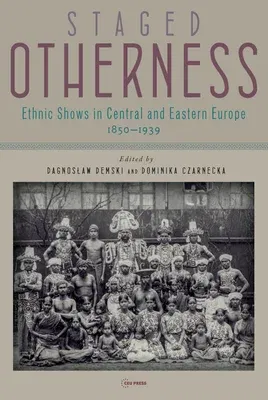The cultural phenomenon of exhibiting non-European people in front of
the European audiences in the 19th and 20th century was concentrated in
the metropolises in the western part of the continent. Nevertheless,
traveling ethnic troupes and temporary exhibitions of non-European
humans took place also in territories located to the east of the Oder
river and Austria. The contributors to this edited volume present
practices of ethnographic shows in Russia, Poland, Czechia, Slovenia,
Hungary, Germany, Romania, and Austria and discuss the reactions of
local audiences. The essays offer critical arguments to rethink
narratives of cultural encounters in the context of ethnic shows. By
demonstrating the many ways in which the western models and customs were
reshaped, developed, and contested in Central and Eastern European
contexts, the authors argue that the dominant way of characterizing
these performances as "human zoos" is too narrow.
The contributors had to tackle the difficult task of finding traces
other than faint copies of official press releases by the tour
organizers. The original source material was drawn from local archives,
museums, and newspapers of the discussed period. A unique feature of the
volume is the rich amount of images that complement every single case
study of ethnic shows.

